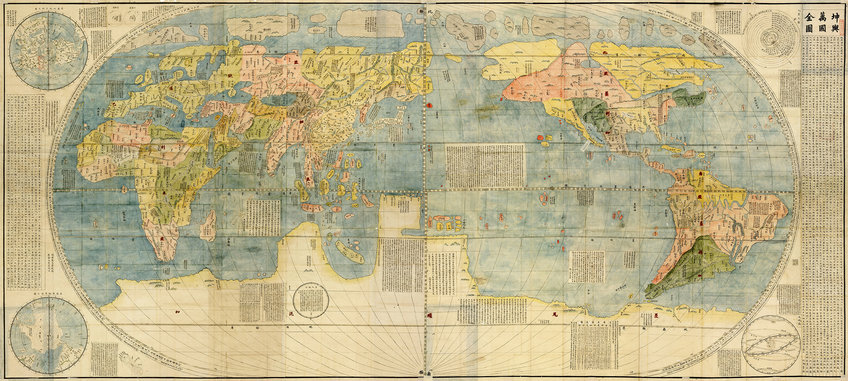
Glocalising Normativities
A Global Legal History (15th-21st century)
Gemeinschaftsprojekt
Glocalising Normativities (GloNo) provides an intellectual framework for research projects on the globalisation and localisation of knowledge of normativity. Most of the projects assembled under this research initiative are dedicated to places that at one time or another were part of the Iberian worlds, Portugal and Spain, and their overseas dominions in the Americas, in Africa and in Asia. Many of the projects within GloNo analyse the production of knowledge of normativity in colonial settings or under postcolonial constellations.
The members of the group are using, debating and refining some of the central analytical tools developed in the department Historical Regimes of Normativity. Legal history is understood here as a continuous process involving the cultural translation of knowledge of normativity, paying special attention to the epistemic communities that are active in this process. As cultural translation of knowledge of normativity is imagined as a process that necessarily happens under specific local conditions, the research projects reconstruct the process of cultural translation through the lens of local sources. By using the term ‘glocalising’, the group emphasises that even globally circulating knowledge is necessarily produced at a certain place and time, and therefore is localised. The globalisation of knowledge of normativity is thus understood as a dialectic, non-linear and non-teleological process.
The Glocalising Normativities framework brings together individual research projects carried out in the department and several research groups, such as the research group ‘Mutual dependencies and normative production in Africa’, led by Raquel Sirotti, in cooperation with the Bonn Cluster of Excellence Beyond Slavery and Freedom. It also served as a hub to facilitate communication with the Max Planck Partner Group ‘Towards a renewed legal history of indigenous labor and tribute extraction in the Spanish Empire’ in Santiago de Chile (2019-2023), led by David Rex Galindo and Thomas Duve. The ongoing research on the rites controversy with regard to China being carried out together with Fupeng Li at the China University of Political Science and Law (CUPL) – as part of a new Max Planck Partner Group in Bejing, China – also belongs to Glocalising Normativities. Moreover, GloNo also cooperates with the International network of researchers on Women's and Gender History in the Iberian Worlds: Global Knowledge Production (16th-20th centuries).
The group works together through a joint reading group, an annual workshop with the members, joint publications, invitations of guests and organisation of conferences.
The Glocalising Normativities group is coordinated by Luisa Stella Coutinho.






